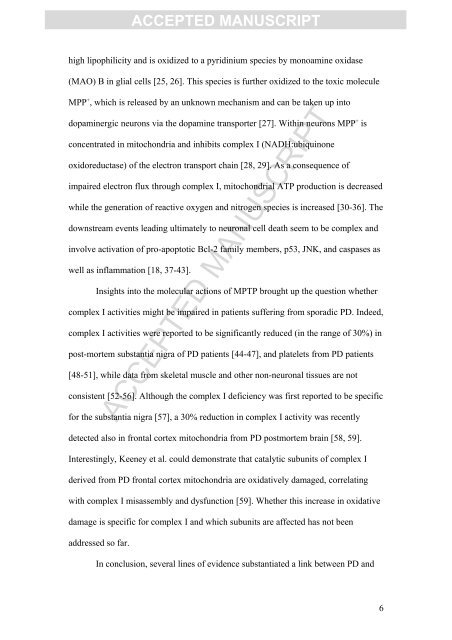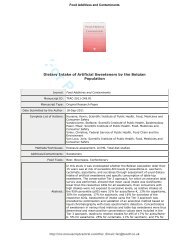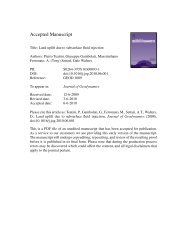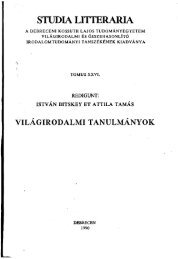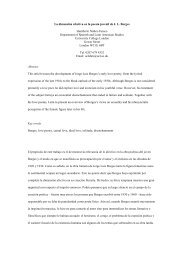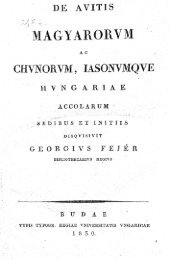accepted manuscript
accepted manuscript
accepted manuscript
You also want an ePaper? Increase the reach of your titles
YUMPU automatically turns print PDFs into web optimized ePapers that Google loves.
ACCEPTED MANUSCRIPT<br />
high lipophilicity and is oxidized to a pyridinium species by monoamine oxidase<br />
(MAO) B in glial cells [25, 26]. This species is further oxidized to the toxic molecule<br />
MPP + , which is released by an unknown mechanism and can be taken up into<br />
dopaminergic neurons via the dopamine transporter [27]. Within neurons MPP + is<br />
concentrated in mitochondria and inhibits complex I (NADH:ubiquinone<br />
oxidoreductase) of the electron transport chain [28, 29]. As a consequence of<br />
impaired electron flux through complex I, mitochondrial ATP production is decreased<br />
while the generation of reactive oxygen and nitrogen species is increased [30-36]. The<br />
downstream events leading ultimately to neuronal cell death seem to be complex and<br />
involve activation of pro-apoptotic Bcl-2 family members, p53, JNK, and caspases as<br />
well as inflammation [18, 37-43].<br />
Insights into the molecular actions of MPTP brought up the question whether<br />
complex I activities might be impaired in patients suffering from sporadic PD. Indeed,<br />
complex I activities were reported to be significantly reduced (in the range of 30%) in<br />
post-mortem substantia nigra of PD patients [44-47], and platelets from PD patients<br />
[48-51], while data from skeletal muscle and other non-neuronal tissues are not<br />
consistent [52-56]. Although the complex I deficiency was first reported to be specific<br />
ACCEPTED MANUSCRIPT<br />
for the substantia nigra [57], a 30% reduction in complex I activity was recently<br />
detected also in frontal cortex mitochondria from PD postmortem brain [58, 59].<br />
Interestingly, Keeney et al. could demonstrate that catalytic subunits of complex I<br />
derived from PD frontal cortex mitochondria are oxidatively damaged, correlating<br />
with complex I misassembly and dysfunction [59]. Whether this increase in oxidative<br />
damage is specific for complex I and which subunits are affected has not been<br />
addressed so far.<br />
In conclusion, several lines of evidence substantiated a link between PD and<br />
6


